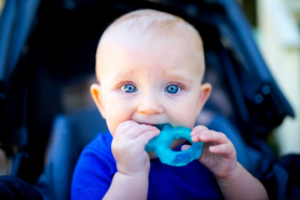Pediatric Dentist Near Me

If carbonated soft drinks are part of your normal daily routine, you may be causing serious damage to your teeth. Recent studies have found soft drinks to be among the most potent dietary causes of tooth decay. Soft drinks have also been implicated in increases of obesity, type 2 diabetes, and other serious health conditions. Before you shop for beverages this week, consider a few things you should know about soft drinks.
Most soft drinks contain substantial amounts of sugars, which interact with the bacteria in your mouth. This interaction produces a form of acid that can damage your teeth for about 20 minutes. Each time you take a drink, you reset that time window. If you consume throughout the day, you are essentially bathing your teeth in that beverage for hours.
Most soft drinks contain acids, as well. Even sugar-free varieties contain acids that can weaken the enamel on your teeth. Colas and citrus-flavored soft drinks tend to have the highest levels of acid. Over time, this weakening of tooth enamel has a cumulative effect. This can lead to decay and even tooth loss if not addressed in early stages.
Obviously, the best solution is to stop consuming carbonated soft drinks. However, it can be a difficult habit to break. Here are some tips to help reduce your risks of tooth damage from these beverages:
- Drink in moderation. Too much sugar and acid will eventually cause damage.
- Try sparkling water. This provides the fizzy sensation without all the sugar and acid.
- Drink more water. You will crave soft drinks less when you are fully hydrated.
- Don’t sip. The longer you spend drinking, the more time sugars and acids are reacting with your teeth.
- Use a straw. This can help keep the sugars and acids away from your teeth.
- Rinse with water after drinking to dilute acids and sugars.
- Don’t brush immediately. Wait at least 30 minutes for acids to be neutralized by saliva before brushing.
- Practice good dental hygiene, including brushing, flossing, and regular professional cleanings and exams.
Carbonated soft drinks can be harmful to your oral and overall health. Be mindful of how often you consume them and consider reducing or stopping your use of these dangerous beverages.
For more oral health tips or to schedule an appointment, contact our office.
650 Pennsylvania Ave, SE
Suite 220
Washington, DC 20003
We are located at Eastern Market.
Phone: 202-849-3292



 How often does your child eat candy? According to a study conducted by the USDA Economic Research Service, children under 12 consume an average of 49 pounds of sugar in one year. While candy is not the sole source of sugar in a child’s diet, the impacts of sugary candy treats are particularly harmful to teeth. Here’s what you need to know about candy and how it might be damaging your child’s smile.
How often does your child eat candy? According to a study conducted by the USDA Economic Research Service, children under 12 consume an average of 49 pounds of sugar in one year. While candy is not the sole source of sugar in a child’s diet, the impacts of sugary candy treats are particularly harmful to teeth. Here’s what you need to know about candy and how it might be damaging your child’s smile. The American Academy of Pediatric Dentistry recommends that children should see a dentist at least once every six months. Depending on your child’s individual oral health needs, they may need to see the dentist more frequently. Our dentist will advise you on how often your child should be seen.
The American Academy of Pediatric Dentistry recommends that children should see a dentist at least once every six months. Depending on your child’s individual oral health needs, they may need to see the dentist more frequently. Our dentist will advise you on how often your child should be seen. It has long been known that dairy products contain high amounts of calcium, which is important for developing and maintaining strong teeth and bones. However, not all dairy works in the same ways. Did you know that a recent study has found that cheese can actually help protect teeth against cavities?
It has long been known that dairy products contain high amounts of calcium, which is important for developing and maintaining strong teeth and bones. However, not all dairy works in the same ways. Did you know that a recent study has found that cheese can actually help protect teeth against cavities? Our convenient local dental office is featuring children’s dentistry services for families in our community. The American Dental Association recommends that all patients follow a routine of dental examinations at least every six months, or as directed by their dentist. This is particularly important for growing children.
Our convenient local dental office is featuring children’s dentistry services for families in our community. The American Dental Association recommends that all patients follow a routine of dental examinations at least every six months, or as directed by their dentist. This is particularly important for growing children.
 It is a common belief that teething causes secondary symptoms such as a runny nose, irritability, high fever, or problems with sleeping. However, studies have shown that these types of concerns are caused by health issues unrelated to teething. Here are some of the things to expect during teething, and some that are often attributed to teething, but are better discussed with your child’s doctor.
It is a common belief that teething causes secondary symptoms such as a runny nose, irritability, high fever, or problems with sleeping. However, studies have shown that these types of concerns are caused by health issues unrelated to teething. Here are some of the things to expect during teething, and some that are often attributed to teething, but are better discussed with your child’s doctor. Periodontal disease is a bacterial infection in the gums that can impact the teeth and jawbone if left unchecked. About half of all children suffer from periodontal disease. Fortunately, if identified and treated early, its effects can be managed and even reversed to allow your child to return to optimal oral health through adolescence and beyond.
Periodontal disease is a bacterial infection in the gums that can impact the teeth and jawbone if left unchecked. About half of all children suffer from periodontal disease. Fortunately, if identified and treated early, its effects can be managed and even reversed to allow your child to return to optimal oral health through adolescence and beyond.